#Mississippi Mythicizers
Text
I think the event had a decently strong finish, and had the potential to be played more seriously even with its mostly gag character cast.
Bunyan's guilt about destroying nature's harmony and damaging the environment was something I'd have loved to really explore. It's even a topic the game has even already touched on with Holmes' discussion of Lobo's backstory in Shinjuku and how humanity's perception of nature as a force they were at war with changed to something we want to protect. What guilt does the "winner" feel after the fight, and do they have a right to feel it?
The "movie as modern myths" angle also could have had a lot of depth to it for world building. Edison's profile talks about how audio-visual technology weakened mystery by making it so much easier to spread information so building on that for how it can also be used to build faith/etc could have been cool. It feels like a topic Waver would lecture about in Case Files.
I really liked Mary and thought her scenes with Pleiso-kun were touching. I think it might have been interesting to have flipped things so we were following her and had the brief check-ins with Bunyan instead. Maybe use the event plot of growing Pleiso-kun as an excuse for why she would qualify as a more traditional 4* welfare as well.
Bunyan's shtick of being an exploitive boss was the weakest part of the event and felt pretty unnecessary. It felt like that was just a leftover from where the Riyo manga was when the event originally came out and didn't really add to the core plot. If we were going to have to do busywork, it would have been better if the movies' plots foreshadowed Bunyan's plan. Maybe make it so Ritsuka could have guessed what Bunyan wanted to do.
#fate grand order#fgo#serial mythological theater#Mississippi Mythicizers#musings#super bunyan#mary anning
24 notes
·
View notes
Text




...oh this is way worse than Teen Angst.
#fgo#fate grand order#fate#paul bunyan fgo#fate bunyan#paul bunyan#nasuverse#fgo event#mississippi mythicizers
15 notes
·
View notes
Text
A minute singularity with a chapter in Memphis, huh? That's fun, I know that place, I live just outside it !
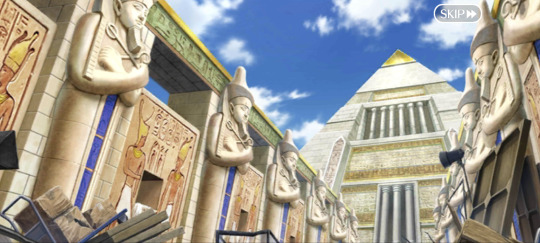
Seems like this is missing something though....
Oh right!
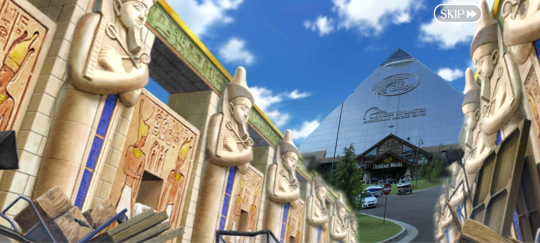
There we go.
#my edit#fate grand order#fate go posting#mississippi mythicizers#bass pro pyramid#i did this on my phone
13 notes
·
View notes
Text
Summoned a new Caster-class Servant:
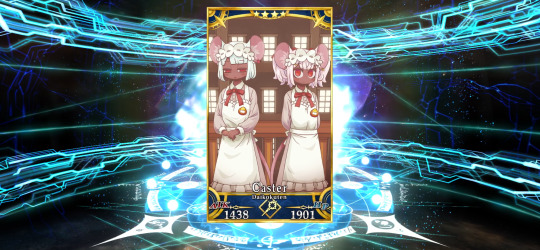
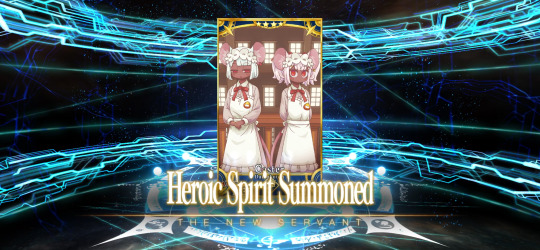
🐭 Daikokuten! 🐭
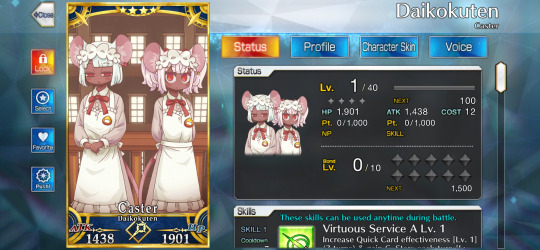
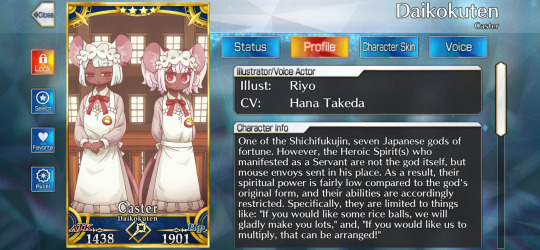
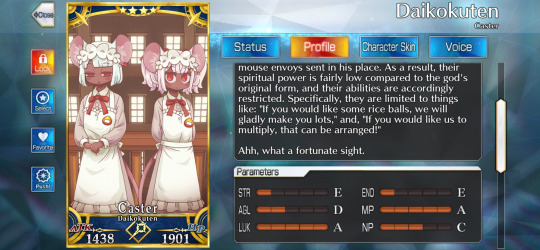
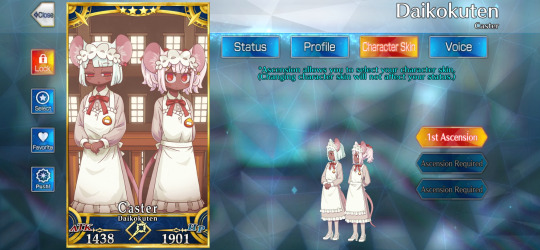
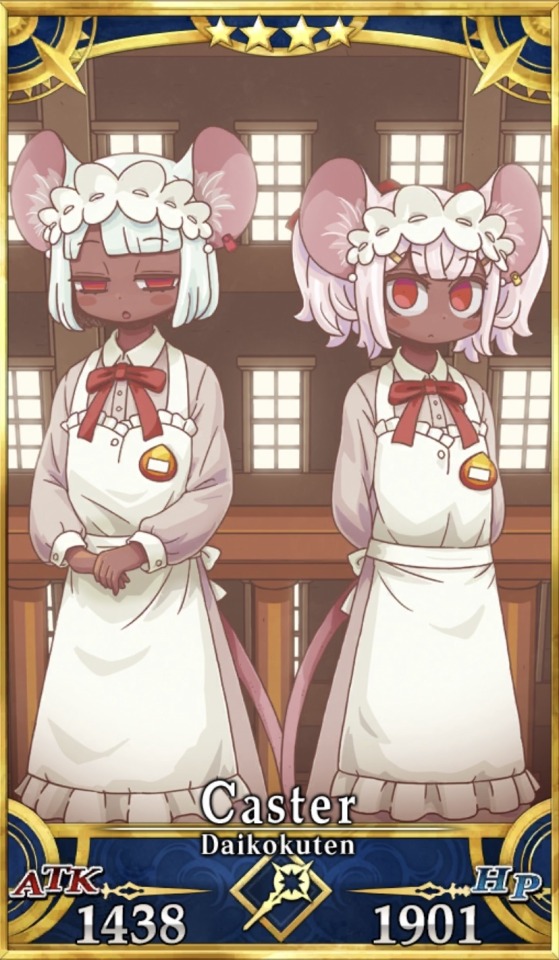
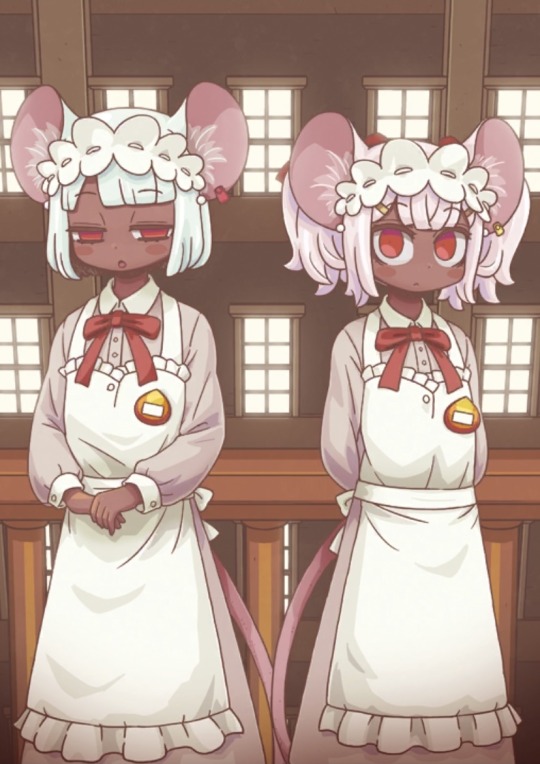
#fgo#fate grand order#FGO Daikokuten#Daikokuten#Learning With Manga! FGO#Learning With Manga! Fate/Grand Order#anime#fate/grand order#大黒��#Caster-Class#Caster Class#Type-Moon#Type Moon#lasengle#heroic spirit#fate go#fate/grand order: cosmos in the lostbelt#Fate Grand Order Cosmos in the Lostbelt#Serial Mythological Theater Mississippi Mythicizers#Serial Mythological Theater#Mississippi Mythicizers#fgo usa#ますますマンガで分かる FateGrandOrder#マンガで分かる FateGrandOrder#もっとマンガbで分かる FateGrandOrder#Daikokuten mice#Daikokuten mouse#mouse maid#maid mice#mice
3 notes
·
View notes
Text
> Event in FGO about the Mississippi River that travels through several US cities
> Not ONE MS city represented, even with a reused background drop
> Area where I'm from is represented by trees and no dinosaurs
This is the closest to a non stereotypical representation of my home in this game, isn't it?
#fate grand order#fgo#mississippi mythicizers#i mean i get it theres nothing worth anything here. but itd have been funny
3 notes
·
View notes
Text

State Griffin: Mississippi!
Northern Mockingbird (State Bird) + Red Fox (State Land Mammal)
#griffin#state griffin#mississippi#state bird#state animal#animal mashup#creature mashup#mythical creatures#digital art#fox
125 notes
·
View notes
Text
Robert Johnson
According to legend, as a young man living on a plantation in rural Mississippi, Johnson had a tremendous desire to become a great blues musician. One of the legends often told says that Johnson was instructed to take his guitar to a crossroad near Dockery Plantation at midnight. (There are claims for other sites as the location of the crossroads.) There he was met by a large black man (the Devil) who took the guitar and tuned it. The Devil played a few songs and then returned the guitar to Johnson, giving him mastery of the instrument. This story of a deal with the Devil at the crossroads mirrors the legend of Faust. In exchange for his soul, Johnson was able to create the blues for which he became famous.

This legend was developed over time and has been chronicled by Gayle Dean Wardlow, Edward Komara and Elijah Wald, who sees the legend as largely dating from Johnson's rediscovery by white fans more than two decades after his death. Son House once told the story to Pete Welding as an explanation of Johnson's astonishingly rapid mastery of the guitar. Other interviewers failed to elicit any confirmation from House and there were fully two years between House's observation of Johnson as first a novice and then a master.
Further details were absorbed from the imaginative retellings by Greil Marcus and Robert Palmer. Most significantly, the detail was added that Johnson received his gift from a large black man at a crossroads. There is dispute as to how and when the crossroads detail was attached to the Robert Johnson story. All the published evidence, including a full chapter on the subject in the biography Crossroads, by Tom Graves, suggests an origin in the story of the blues musician Tommy Johnson. This story was collected from his musical associate Ishman Bracey and his elder brother Ledell in the 1960s. One version of Ledell Johnson's account was published in David Evans's 1971 biography of Tommy Johnson, and was repeated in print in 1982 alongside House's story in the widely read Searching for Robert Johnson, by Peter Guralnick.
In another version, Ledell placed the meeting not at a crossroads but in a graveyard. This resembles the story told to Steve LaVere that Ike Zimmerman of Hazlehurst, Mississippi, learned to play the guitar at midnight while sitting on tombstones. Zimmerman is believed to have influenced the playing of the young Johnson.
Recent research by the blues scholar Bruce Conforth, in Living Blues magazine, makes the story clearer. Johnson and Ike Zimmerman did practice in a graveyard at night, because it was quiet and no one would disturb them, but it was not the Hazlehurst cemetery as had been believed: Zimmerman was not from Hazlehurst but nearby Beauregard, and he did not practice in one graveyard, but in several in the area. Johnson spent about a year living with and learning from Zimmerman, who ultimately accompanied Johnson back to the Delta to look after him.
While Dockery, Hazlehurst and Beauregard have each been claimed as the locations of the mythical crossroads, there are also tourist attractions claiming to be "The Crossroads" in both Clarksdale and Memphis. Residents of Rosedale, Mississippi, claim Johnson sold his soul to the devil at the intersection of Highways 1 and 8 in their town, while the 1986 movie Crossroads was filmed in Beulah, Mississippi. The blues historian Steve Cheseborough wrote that it may be impossible to discover the exact location of the mythical crossroads, because "Robert Johnson was a rambling guy".
Some scholars have argued that the devil in these songs may refer not only to the Christian figure of Satan but also to the trickster god of African origin, Legba, himself associated with crossroads. Folklorist Harry M. Hyatt wrote that, during his research in the South from 1935 to 1939, when African-Americans born in the 19th or early 20th century said they or anyone else had "sold their soul to the devil at the crossroads", they had a different meaning in mind. Hyatt claimed there was evidence indicating African religious retentions surrounding Legba and the making of a "deal" (not selling the soul in the same sense as in the Faustian tradition cited by Graves) with the so-called devil at the crossroads.
The Blues and the Blues singer has really special powers over women, especially. It is said that the Blues singer could possess women and have any woman they wanted. And so when Robert Johnson came back, having left his community as an apparently mediocre musician, with a clear genius in his guitar style and lyrics, people said he must have sold his soul to the devil. And that fits in with this old African association with the crossroads where you find wisdom: you go down to the crossroads to learn, and in his case to learn in a Faustian pact, with the devil. You sell your soul to become the greatest musician in history.
This view that the devil in Johnson's songs is derived from an African deity was disputed by the blues scholar David Evans in an essay published in 1999, "Demythologizing the Blues":
There are ... several serious problems with this crossroads myth. The devil imagery found in the blues is thoroughly familiar from western folklore, and nowhere do blues singers ever mention Legba or any other African deity in their songs or other lore. The actual African music connected with cults of Legba and similar trickster deities sounds nothing like the blues, but rather features polyrhythmic percussion and choral call-and-response singing.
The musicologist Alan Lomax dismissed the myth, stating, "In fact, every blues fiddler, banjo picker, harp blower, piano strummer and guitar framer was, in the opinion of both himself and his peers, a child of the Devil, a consequence of the black view of the European dance embrace as sinful in the extreme".
Both Lomax's and Evans's accounts themselves have been disputed and dismissed by Black scholars and authors including Amiri Baraka and Cornel West. West defines Blues as a creation of a people "who are willing to look unflinchingly at catastrophic conditions", as children of God responding to those conditions. Baraka's words are more directly critical of white writers who study African-American Blues artform and culture from a Western viewpoint, stating that they "They have to do that to make themselves superior in some kind of way: that everything has come from Europe, which is not true". Baraka cites that rather than being formed out of any Western context, Blues derives from an African context of its own. The call-and-response singing Lomax argues is different from Blues has been widely cited as being a central aspect of Blues music.
58 notes
·
View notes
Text
⚡️Half of all U.S. states, 25 to be exact, carry Native American names. Today we will be taking a look at the 25 states and the meanings of their names. They will be listed in alphabetical order.
1. 1.Alabama: The name Alabama is derived from the Native American Choctaw language and means "vegetation gatherers" or "thicket-clearers."
2. 2.Alaska: The name Alaska is derived from the Aleut language and means "mainland" or "great land."
3. 3.Arizona: The name Arizona is derived from the Spanish word "arizonac," which is thought to be a Basque phrase meaning "place of the small spring."
4. 4.Arkansas: The name Arkansas is derived from a French pronunciation of the Native American Quapaw tribe's name, which means "land of downriver people" or "people of the south wind."
5. 5.California: The name California is derived from a Spanish novel and was believed to be a mythical island called "California."
6. 6.Colorado: The name Colorado is derived from the Spanish word for "colored red," referring to the reddish sediment in the Colorado River.
7. 7.Connecticut: The name Connecticut is derived from the Native American Mohegan-Pequot word "quinnitukqut," meaning "beside the long tidal river."
8. 8.Delaware: The name Delaware is derived from the English explorer Thomas West, Lord De La Warr.
9. 9.Florida: The name Florida is derived from the Spanish phrase "Pascua Florida," meaning "flowery Easter" or "feast of flowers."
10. 10.Georgia: The name Georgia is named after King George II of England.
11. 11.Hawaii: The name Hawaii is derived from the Polynesian language and means "place of the gods" or "homeland."
12. 12.Idaho: The origin of the name Idaho is unclear, but it is believed to be a coined word with no specific meaning.
13. 13.Illinois: The name Illinois is derived from the Native American Algonquin language and means "tribe of superior men."
14. 14.Indiana: The name Indiana means "land of the Indians" or "land of Indians."
15. 15.Iowa: The name Iowa is derived from the Native American Sioux language and means "beautiful land" or "sleepy ones."
16. 16.Kansas: The name Kansas is derived from the Native American Sioux language and means "people of the south wind" or "people of the south."
17. 17.Kentucky: The name Kentucky is derived from the Native American Iroquoian language and means "land of tomorrow" or "meadowland."
18. 18.Louisiana: The name Louisiana is derived from the French King Louis XIV.
19. 19.Maine: The origin of the name Maine is uncertain, but it is believed to be derived from the French province of Maine.
20. 20.Maryland: The name Maryland was chosen to honor Queen Henrietta Maria, wife of King Charles I of England.
21. 21.Massachusetts: The name Massachusetts is derived from the Native American Algonquin language and means "at or about the great hill."
22. 22.Michigan: The name Michigan is derived from the Native American Ojibwa language and means "large water" or "large lake."
23. 23.Minnesota: The name Minnesota is derived from the Dakota Sioux language and means "cloudy water" or "sky-tinted water."
24. 24.Mississippi: The name Mississippi is derived from the Native American Ojibwa language and means "great river" or "father of waters."
25. 25.Missouri: The name Missouri is derived from the Native American Sioux language and means "town of the large canoes" or "town of the wooden canoes."

12 notes
·
View notes
Text
Obituary: The son who soared: Jeff Buckley
Date: June 6, 1997
From: The Guardian (London, England)
Publisher: Guardian News & Media
Document Type: Obituary
Byline: ADAM SWEETING
FEW ROCK business careers began more tantalisingly than that of Jeff Buckley, who has drowned in the Mississippi river, aged 30 (his body was found on Wednesday this week). In 1991, record producer Hal Willner, known for assembling imaginative, star-studded tributes to Charles Mingus and Kurt Weill, put together a tribute concert for Jeff's father, Tim Buckley, at St Ann's Church, Brooklyn, New York. Tim had died of a heroin overdose in 1975, aged 28, but his early death ignited a slow-burning musical legend. It was founded on his recorded legacy in which soul, blues and jazz influences mingled freely, the process stirred by his arrestingly elastic vocal style.
His son Jeff, born in California during Tim's brief marriage to Panama-born Mary Guibert, had always been ambivalent about his father. Tim left Mary when Jeff was six months old, and his son was brought up by his mother and stepfather during a peripatetic childhood. 'We moved so often I had to put all my stuff in paper bags,' Jeff recalled. 'My childhood was pretty much marijuana and rock 'n' roll.'His decision to participate in Willner's tribute event launched Buckley Junior as a new phenomenon on the New York music scene, and simultaneously affirmed his quasi-mythic credentials, particularly when he performed his father's song Once I Was. 'It bothered me that I hadn't been to his funeral, that I've never been able to tell him anything,' said Jeff. 'I used that show to pay my last respects.'
Thus launched in public, Buckley was rescued from a string of odd jobs by joining the avant-garde combo Gods & Monsters, which featured Pere Ubu's ex-bassist Tony Maimone and Captain Beefheart's erstwhile guitarist Gary Lucas. But it was more a loose group of individuals than a real band and Buckley quit in early 1992 to pursue a solo career.
He began performing at small Manhattan clubs, particularly the Cafe Sin-e, where record company executives and A&R men were soon arriving by the limo-full, waving chequebooks. 'I went into those cafes because I really felt I had to go to an impossibly intimate setting where there's no escape, where there's no hiding yourself,' he explained.
Buckley's remarkable voice (his most obvious inheritance from his father) and movie-star looks left nobody in doubt that he was a star in the making, though the eclecticism of his shows confused some listeners. Buckley would pluck songs out of the air as the mood took him. It might be something by Van Morrison, the Hollies or Big Star, or a tune made famous by Nina Simone or Mahalia Jackson.
With a hippie-esque suspicion of large corporations, he turned down several deals before signing with Columbia at the end of 1992, apparently because he knew and trusted the label's A&R man Steve Berkowitz. The company previewed their new acquisition with a live EP, Live At Sin-e, following which Buckley travelled upstate to Bearsville to start work on his debut album, Grace.
The disc was released in 1994 to instant critical adulation. The sleeve pictured Buckley clutching a microphone and looking poetically dishevelled, while the music inside was a cornucopia of rockers, ballads, hymns and even a bold rendition of Benjamin Britten's Corpus Christi Carol, by no means standard rock 'n' roll fare. His voice was wild, passionate and sensual. If his music was hard to describe in a soundbite, it was bursting with hidden depths and infinite potential. Grace won Buckley the Best New Artist award from Rolling Stone magazine in 1995.
Buckley's inquisitiveness and musical ambition earned him acceptance across a broad spectrum of fellow performers. Elvis Costello brought him over in 1995 to perform at London's Meltdown Festival, where he easily held his own among string quartets and jazz ensembles, and last year he featured on Patti Smith's comeback album, Gone Again. He was also a fan of Eastern music, particularly the Islamic devotional Qawwali songs of Nusrat Fateh Ali Khan.
Buckley had been in Memphis since February, recording new material. He decided to go swimming in the Mississippi, fully clothed and carrying his guitar, but was apparently pulled under by the wash from a passing tug.
Jeff Buckley, rock singer, born August 1, 1966; died May 29, 1997
8 notes
·
View notes
Text
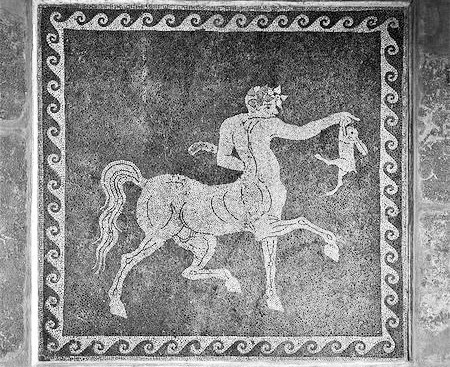
On this day:
CENTAUR IN CENTERVILLE
On May 18, 1963, in the tiny town of Centerville, Illinois, police were bombarded with over fifty phone calls from people who had seen a centaur. The mythical creature had first been seen in St. Louis, just across the Mississippi River. A group of school children said they had witnessed a "half man, half woman with a half bald head and a half head of hair" prowling around a housing project and vanishing into an old tunnel. A St. Louis Police Department patrolman declared that the children had definitely observed something and that the beast apparently tussled with a man near the school. The centaur was also seen by a shocked James McKinney, directly in front of his house. He said, "It looked like a half-man, half-horse." The creature appeared to be in the area for two weeks.
Greek poets tell of a race of beings having arms, chests, and heads of men, but bodies like those of horses. Living in Thessaly, this species was reputed to have groups that were kind and groups that were savage. In the mythology of the Iliad, the centaurs attended a wedding, but became drunk. They then attempted to make off with the bride and other women at the feast.
During the second century AD, Phlegon of Tralles wrote his infamous Book of Marvels. One of the book's many sensational stories tells of a hippocentaur, captured in Arabia and sent, as a gift, to Egypt. Unfortunately, it died and was then embalmed and offered to the emperor of Rome, who displayed it in his palace. The centaur had a fierce face, a tawny mane, hairy arms and fingers, and ribs joined to its front legs, which ended in hooves.
Text from: Almanac of the Infamous, the Incredible, and the Ignored by Juanita Rose Violins, published by Weiser Books, 2009
8 notes
·
View notes
Text
While I can see why the "Black Company/exploitive boss" character they gave Super Bunyan was off-putting when the event came out, I'd at least heard about that and so was prepared for it.
But a more general issue I hadn't heard anyone talk about is how the story is repetitive in a really weird way, where information will be repeated but characters respond like they're hearing this for the first time.
Like, we arrive in town and they tell us the mice put up a Queen Mary sign. Then we have to deal with everyone being mad at Super Bunyan and getting the money to pay off her debts. But after we do that all the stuff about the sign is repeated and Bunyan acts like it's this new info.
#fate grand order#fgo#Serial Mythological Theater - Mississippi Mythicizers#super bunyan#am I tripping on this?
4 notes
·
View notes
Text




...holy shit she really is a teenager.
I was not ready for Babi Bunyan to be a real ass teen with anxiety.
#fgo#fate grand order#fate#paul bunyan fgo#fate bunyan#nasuverse#fgo event#mississippi mythicizers#type moon#shes a fucking teenager#oh no
7 notes
·
View notes
Text





King Plesiosaurus from the Mississippi Mythicizers event.
Other than Anning's NP, he'll come back in his tiny form in an Ordeal Call node to give you blue knight gems if you play with him.
Spoiler below for the event:

Too much grail food is bad for a growing boy. Look what it did to him - he has glowing lesions on his body. ;^;
#fgo#king plesiosaurus#I have such a strong urge to pet him#and feed him all the fish#or is it him later given the question mark?#I just don't know
3 notes
·
View notes
Text
𝐓𝐚𝐦'𝐬 𝐁𝐨𝐨𝐤 𝐑𝐞𝐯𝐢𝐞𝐰𝐬 #𝟏 📚
𝐄𝐥𝐯𝐢𝐬: 𝐢𝐧 𝐭𝐡𝐞 𝐓𝐰𝐢𝐥𝐢𝐠𝐡𝐭 𝐨𝐟 𝐌𝐞𝐦𝐨𝐫𝐲 𝐛𝐲 𝐉𝐮𝐧𝐞 𝐉𝐮𝐚𝐧𝐢𝐜𝐨

Biloxi, Mississippi, 1955. When a friend of seventeen year old June Juanico invited her along to a concert by a popular young singer, she hesitated, but finally went. The singer, ofcourse, was Elvis Presley and when his eye caught June's, they both got all shook up. So began the most significant of his early relationships - a summer idyll of romance and playful fun that was to be a last stop of innocence on the path to self-destruction. In this clear-eyed, loving, and tender memoir, June gives us Elvis on the verge of mega-stardom, still a country kid with polite manners, a voice that melted hearts, and more sex appeal than anyone could handle.

Oh, to be young and in love... (and now we all let out a dreamy sigh)
If you're looking for a no-shit, no sugar coating, tell it how it is but sweet book about Elvis, this one is definitely it. Because that's exactly the type of person June Juanico is; she's sweet but she doesn't take shit from anyone and tells it how it is. Even to Elvis.
The book is written in almost a diary kind of style, which is accurate because she kept a diary in that time and wrote her moments with Elvis down. It's a love story and a sweet one at that- June does a really good job of taking you right into the '50s. The book only has about 300 pages and 40 chapters, so it's an easy and quick read. And a very fun one!
June dedicates her book to Elvis fans everywhere and Gladys Love Presley, "the greatest fan he ever had".
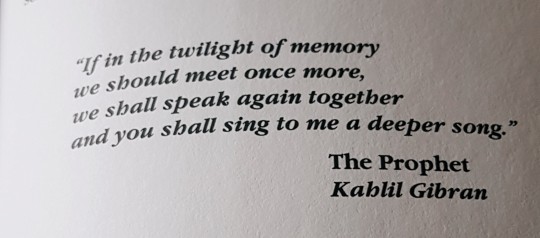
(A quote of The Prophet, which was given to Elvis by June.)
Peter Guralnick wrote the introduction for this book and he wrote: "There have been lots of books written about Elvis Presley, ofcourse, with probably as many personal memoirs among them as have attached to any other cultural figure or entertainer in history. Some have been spurious, a number seem to have been written out of little more than personal rancor, motivation has ranged from love to money to self-adumbration (never has one man had so many chief advisers). Virtually none have actually been put together by their narrators. That is one of the things that makes June Juanico's book different; it is not simply that she has written a book that is filled with feeling and insight, that conveys an experience with truth and without rancor, about a real, not-mythic Elvis Presley. She has also written (and rewritten) every word herself and in the process produced an account that is as touching in its unadorned honesty as it is refreshing in its feisty and unself-censored voice.
June Juanico's book carries conviction in its very simplicity, but don't be misled by that simplicity. There's a writer, too. And we are getting the benefit not just of her experiences but of her insights as well."

Naturally, the book starts with a prologue- in this case, it's June and her friend Pat driving to New Orleans. June has her mind set on one thing and that is to end things with Elvis. Even Pat cannot persuade her to change her mind- she's engaged to be married to Fabian Taranto and she's going to leave Elvis in the past.
But... more on that later.
The story starts with June telling us a little about her life and her childhood. Her father, who carried Spanish and Native American heritage, was a handsome athlete in high school, where he met June's mother. They got married when her mother was sixteen and after five years, welcomed a boy into the family. Two years later, June came.
Her father wasn't a very fun drunk and when her mother caught him cheating, she threw him out. Even though June wasn't the oldest, she was the only female in the household next to her mother who had to work to provide for her family so June was in charge of cooking and cleaning. That's all she really writes about her childhood and then we move on to 1955, where Elvis comes in the picture.
June was invited to an Elvis show by Glenda, a close friend. June had plans with the guy she was dating at the time so she didn't want to go at first but she eventually agreed.
Their eyes meet a few times from the stage and when Elvis takes a break, he stops June when she comes out of the ladies' room. She's trying to play hard to get, but who is she kidding? When he asks her to show her around town after the show, she agrees. And it's cutest thing ever.

(I highlighted so many things and put so many tabs in this book and I can't share all of them in one post - damn you tumblr! - but they're just the cutest!)
They were out until 6 o'clock in the morning, talking and talking. After that, Elvis called her house, her brother picked up and well... June and Elvis didn't see each other again until 1956 when she went on a trip to Memphis with a few girlfriends (she wanted to go to Florida instead, I'm sure she's glad that didn't happen👀).
The girls hang around Audubon Drive, sooo Elvis and June reunite again. They spend time together and naturally, fall in love. He's open about his feelings with her and she calls him out on his bullshit - because you know, a guy is a guy and they use lines to get what they want. But not Elvis- he means what he says and it doesn't take June long to meet the parents. Vernon doesn't talk much, but Gladys adores June and this is one of my favorite things about the book. Whenever June was over at the house in Memphis, Gladys treated her like a daughter of her own and I really feel like Gladys wanted them to marry and have babies. June was the perfect girl in Gladys' eyes; she could cook, she could clean and she was a nice, normal girl. June called her "Lovie" and Gladys called her "little Satnin"... Oh, my heart. MY HEARTTTT. 😫
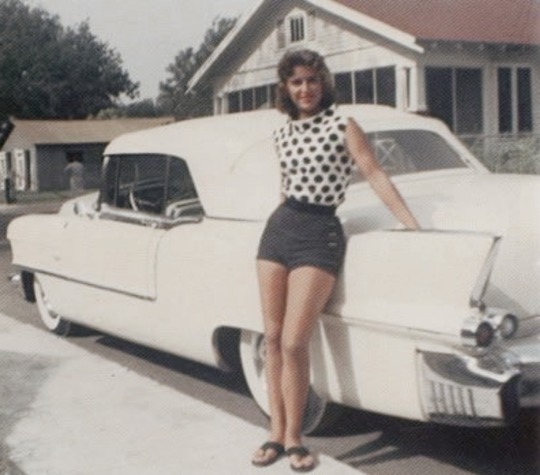
(June with the '56 Cadillac Eldorado they picked up in Houston and drove back to Memphis together. Photo taken by Elvis in June's driveway in Biloxi.)
ANYWAYS, the urge to describe every chapter of this book? Big. Very big. But I won't- I'm not that crazy and I won't spill everything. Takes the fun of reading it yourself away.
Elvis blurts out the L word quick. After four days, to be exact. And so does June. They're in love, that kind of young love where you don't want to spend a minute away from each other but June has to go back to Biloxi and they're forced to spend a little time apart. Not very long though because Elvis finds his way to Biloxi and they're together again, along with their friends.
Their group exists out of June, Elvis, Red, Junior, Gene, Arthur Hooten and June's friends Pat and Buddy who quickly become Elvis' friends too. They go deepsea fishing (joined by Vernon and Gladys and a few others), take a trip to New Orleans with just Vernon and Gladys and ugh, they just take every minute they can get together. Which, when it comes to Elvis and June, was almost every minute of the day when they had the chance. Their little dates are the sweetest thing to read about and their little group of friends seem so fun to hang out with (minus June and Pat accidentally walking in on Red having sex with a random girl, woops). The way this is written, it really feels you're there and it gets better when they join Elvis on the Florida tour. They watch the show from the side of the stage, hang backstage, at motels, go on drives, go horseback riding.
Just fun, carefree stuff. And that's exactly how this book and their romance feels- fun and carefree. There's no real heavy stuff written here like in some other Elvis books. And yes, June and Elvis had their little "fights" or an argument now and then, but it never lasted long and June was like "fuck you!". Well, not in those exact words, but she didn't put up with any shit and said whenever something bothered her. Elvis' jealous side is shown in this book too, as well as how fast his mood could turn around- June doesn't seem like the type of person who would be completely "submissive" to him, or any other man, and she never was.
Personally, I love that kind of dynamic in a relationship.
June doesn't describe much about them being intimate other than a make out session that almost went too far in the car and in the pool and Gladys knocking on the door when Elvis was about to... enter.. June, but that's it and that's enough for this story. If she would've described their entire sex life, I think it would've taken away from the sweetness and almost innocent like feel of this book. It's perfectly fine without it.
When the tour was over, June went to visit Elvis in Memphis again with Pat- he was supposed to transfer money to her for the flight, but the money never came and she found out the next day it was because Elvis had that fight at the gas station. Woops! The next day, they were off to Memphis though and June and Nick Adams met. June did not like Nick at all and as The Colonel's spy, he tried to get inbetween her and Elvis a few times, asking her and Pat all kinds of weird ass questions but luckily neither of them fell for it. Elvis wrote it off as nothing when she told him about it and June stayed somewhat.. civilized toward Nick, but she sure made it known she didn't like the sucker at all.

(Nick wore "Hollywood Teeth", a curved thin strip of teeth that slip over your own, as did Elvis. He couldn't eat with them and June would hold onto them sometimes; this is what she decided to do with them during a family dinner and I screamed reading this. June is such a vibe.)
When Elvis had to leave to New York for the Ed Sullivan show, he wanted June to join him but she didn't want to (she still had a worried mother back in Biloxi and couldn't just up and leave to NY). Then Elvis tried to get her to stay behind in Memphis with his parents, but things ended in an argument, with her saying she'd be back when Nick left and Elvis telling her fine, whatevurrrr. Naturally, their argument didn't last long- they apologized to each other, exchanged their 'I love you's' and spend their last bit of time together. This time, it would be their last time together as a couple.

(June and Elvis with Vernon and Gladys on a deepsea fishing trip.)
Elvis and June's phone calls were getting less frequent. He didn't call for her birthday and when she saw a picture of him and a showgirl from Vegas he brought home, let's just say she wasn't very happy. And then another photo surfaced of Elvis and a showgirl and then a few days after Christmas (which he spend with another girl), he called. The conversation was rushed, him wishing her a Happy New Year and I think by then, June had made her decision.
She writes: "I didn't mind sharing Elvis with his fans; that part was easy. I just couldn't share him with other loves. I couldn't spend my life waiting in the wings - and I wouldn't! I had to be not just his number one, but his one and only."

(Telegram sent by Elvis to June, March 18, 1957.)
When June received Elvis' telegram, she was already engaged to Fabian Taranto. She did make the trip to New Orleans though and Elvis' parade was soon rained on when she told the news about her engagement. The next day papers headlined "Elvis buys Graceland!" and she couldn't help but wonder if that was the surprise Elvis was talking about when she got on that train in NOLA, only to jump off minutes later and leave Elvis Presley in the past.
But come on, nobody puts Elvis Presley in the past. (Nobody puts Baby in the corner - ok, kidding)
Pat and June fight, like.. fight fight. They have to be pulled apart by Fabian. Pat takes Elvis' side and thinks June is making a mistake by letting him go and I think it's because Pat didn't wanted the fun to end. Her group of dear friends she always had so much fun with was breaking apart and growing up and there was nothing she could do about it. Pat still visits Graceland at that time and hangs out with the guys and she notices Elvis still has a copy of The Prophet, believing it's still the one June gave him.
When Gladys passed away, June was in the hospital giving birth to her first and only son. Pat and June make up again and their friendship lasted a lifetime. In 1962, June gives birth to a daughter. In 1963, June visits Memphis for a bowling tournament she was in and decides to visit Graceland - they recognize her and let her in, but then she leaves so she can surprise Elvis at the theater he's at.
They hug and they talk and Elvis invites her over to Graceland the next day. She's excited but the next day she hears Elvis is having "personal problems" and wouldn't be able to see her and her bowling team, sending his regards.
But! The universe works in funny little ways. And sometimes real terrible ways- a hurricane devastates the entire coastline of Mississippi in 1969 and Fabian stays behind in Biloxi Bay, while June and her children move in with Fabian's brother, Wally, in Vegas. Who is also friends with... you guessed it, Elvis!
Wally worked at the International and they attended an Elvis show together. I guess Wally was excited about his sister in law being Elvis' ex-girlfriend, because as soon as they got home, he immediately phoned backstage at the International and paged Joe.
Elvis and June talked over the phone. They talk about the hurricane, a little about the past, their children, and June tells him about Buddy's battle with cancer and his passing. It frustrates Elvis, who says: "Damn! Damn! Why is it the good die young, June? Why? Damn! I sure hate hearing that about good old Buddy. I really liked old Buddy,"
Why is it the good die young?
This line tugs at my heartstrings every time I read it. It's a question I am sure we all ask so often and a question that frustrates us and makes us sad, especially when it comes to Elvis.
She asks him what he does to unwind after a show and he tells her he reads. He reads a book someone very special once gave to him, he's read it at least a million times and keeps a copy on him at all times. It's his unwinder. He's talking about The Prophet.
Their phone call ends with telling each other to take care of themselves and them exchanging "I love you's". This time, truly for the last time.
Pat being a flight attendant, the girls don't see each other very often but on the 4th of July in 1977, a party is thrown in her honor. Pat expresses worry about Elvis to June, saying that there was something about Gladys and him being the same age, Elvis not being in the best health and pressing how he was with his premonitions of death. Pat wants to visit Memphis with June to check on him and see if there is a way they can help- they try to plan a trip to Memphis but June is worried Fabian wouldn't be too happy with the news.
She suggests that they'll go to Elvis' show in Biloxi a few months later, but by then it's too late. The concert was planned for September 1977, a month after his passing.
And that's how this book ends. In my opinion, it's a rather.. abrupt end. I expected more from the ending. June talks highly about Elvis and the way she feels about him and about all their moments together, but on the last page, there's a lack of... emotion? I don't doubt that June loves Elvis and that he was her first love, which is the reason why I was like... huh? The end? GIRLY JUANICO, PLS. But that could just be me.
I absolutely adore this book and it's one of my favorites. Like I stated before, it's a very fun and quick read. It's light, there's no extremely heavy topics imo, and I think June intended it to be this way, hence the reason for the ending I think. It's mostly about two young people in love and having as much fun with each other as they can. It's beautiful and heartwarming and June did a really good job at taking you straight into 1956 along with her, Elvis and their friends- it made me want to be there! There is so so SO much more in this book than what I've described, so if you have not read it, I totally recommend to get your hands on this one. It's a gem. A sweet, teeth rottin' gem.
Definitely a 9/10 for me! 💗

(June and Fabian.)
All opinions on this book are mine. If yours are different, that's totally okay too. Want to discuss? Leave a comment or slide into my inbox! I'd love to hear your opinion on this book if you've read it, or if you are planning on reading it. 💌
#tam's book reviews 📚#this kinda turned into a summary HAHA oh well#i talk too much deal with it!#elvis#elvis presley#elvis books#june juanico#elvis and june#1950s#1956#book review#elvis memoir#memoirs
30 notes
·
View notes
Text
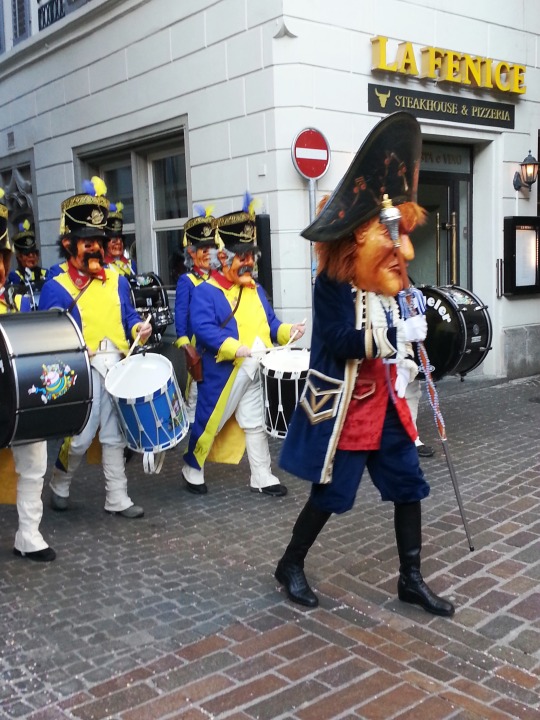

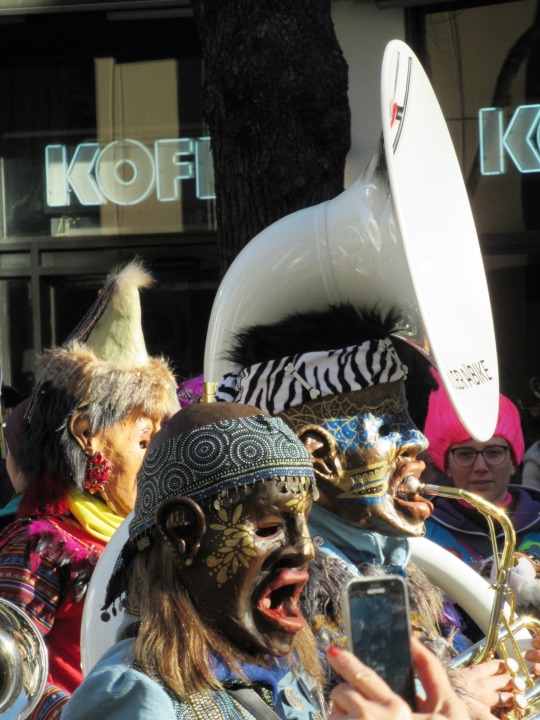

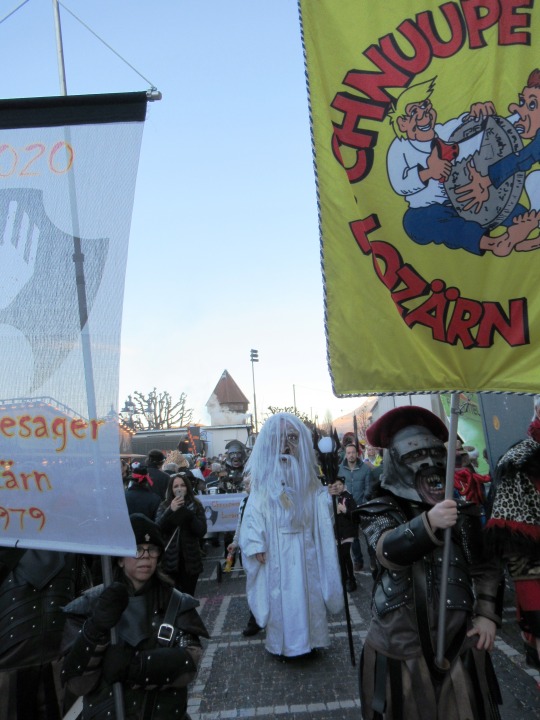

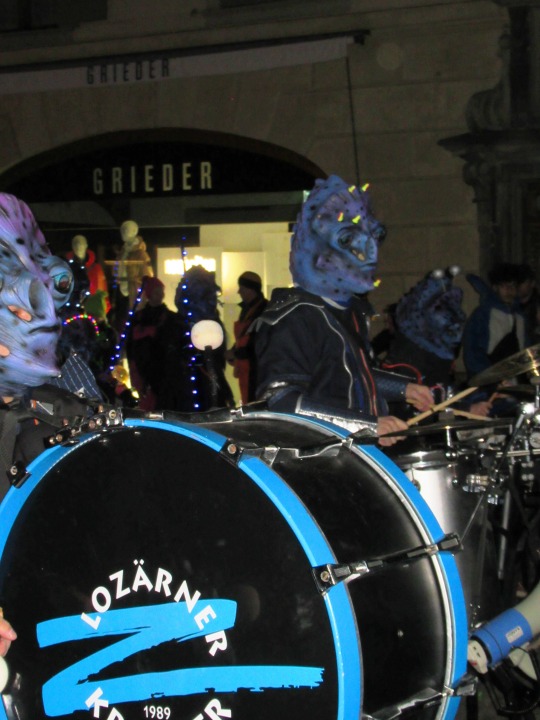







Shrove Monday/Güdismontag
This year, Shrove Monday will be observed on February 20. The day, also known as “Collop Monday”, “Rose Monday”, “Merry Monday”, or “Hall Monday,” is an annual Christian holiday that is observed on the Monday before Ash Wednesday. The day is celebrated with carnival parades and floats that often satirize a culture’s habits or people, national and international public figures, recent events, and taboo subjects. Marching bands and local associations are also a part of these parades. The parades are visited by spectators and some may even receive media coverage. Spectators at the parade also dress as mythical or political figures, thus adding to the merriment of the day.
History of Shrove Monday
The origins of Shrove Monday are not entirely clear. However, the traditions around the carnival and parades may have begun over two thousand years ago by the Romans. In these carnivals, it wasn’t uncommon to see the servants and slaves playing the role of masters and dressing up like them. Fast forward to today, the tradition continues with people dressing up as local and international public figures while satirizing them.
Shrove Monday also signals the end of the period before ‘Lent’ for many Christians. Until Easter, Christians observe a period called Lent. Some might even choose to fast or spend more time praying during the Shrovetide week. Several Christians give up meat, sugar, eggs, and alcohol during this period. The fast or abstinence is broken by consuming these food products during the carnivals.
The day is sometimes called “Collopy Monday” in the U.K. owing to a traditional meal eaten for breakfast on the day — collops of bacon eaten with an egg. Whereas in east Cornwall, Shrove Monday is known as “Paisen Monday” or “Peasen Monday”, in honor of the pea soup that is eaten on this day. Shrove Monday is a popular holiday in numerous countries. It is part of the Carnival calendar in Greece, and in many Caribbean countries, it is known as “Carnival Monday” — thus starting the Carnival season. In the Americas, Shrove Monday is more popular as “Luni Gras” or “Fat Monday”. In Lucerne it's called "Güdismontag". Güdis is an old word for stomach and Montag is Monday. It's the last Monday to fill your stomach with all the good eats before the Lent starts on Wednesday.
It appears that almost every culture has its version of Shrove Monday!
Shrove Monday timeline
12th Century The Royal Shrovetide Football Match
Henry II starts the trend of an annual traditional football match that is different from modern-day football.
19th Century The Celebrations in the Caribbean
Trinidad and Tobago Carnivals first celebrate Shrove Monday in the Caribbean.
19th Century The Mississippi Gulf Coast Mardi Gras
Carnival celebrations to mark Shrove Monday begins in Mississippi, U.S.
20th Century The New Name
Mississippi Gulf Coast Mardi Gras is renamed Lundi Gras or Fat Monday.
Shrove Monday FAQs
What does Shrove Monday celebrate?
Shrove Monday is celebrated before Ash Wednesday and signals people to start preparing for the season of Lent.
Is Shrove Monday a holiday in Germany?
Shrove Monday is not a public holiday in Germany.
Where is Shrove Monday celebrated?
Shrove Monday is celebrated in Europe, the Americas, and even the Caribbeans.
How to Observe Shrove Monday
Feast on collop and eggs
Attend a carnival
Start preparing for Lent
Start Shrove Monday by feasting on the traditional meal of collop and eggs. A collop of bacon may be eaten with beans and vegetables to add more flavor to the dish. This is the best way to start the celebrations!
Find out if there are any carnivals on Shrove Monday located close to your area. You may even dress up in costumes or participate in the festivities as a spectator. Shrove Monday carnivals are a stunning sight.
After you are done celebrating Shrove Monday, you could start preparing for Lent. Devout Christians prepare for Lent by confessing, fasting, giving up certain food items, and praying more.
5 Intriguing Facts About Shrove Monday
It’s always on a Monday
The name comes from the word ‘shriving’
Carnivals and Shrove Mondays are synonymous
‘Collop’ doesn’t always mean bacon
It also marks the start of spring
More precisely, Shrove Monday is always celebrated 48 days before Easter.
The old word ‘Shriving’ means to listen to someone’s sins and forgive them.
Some of the world’s largest and most famous carnival celebrations take place in New Orleans, Rio de Janeiro, and Venice.
Any fatty piece of meat may be referred to as ‘collop’ and consumed on Shrove Monday.
Shrove Monday marks the beginning of Spring in the Greek Orthodox calendar.
Why Shrove Monday is Important
Celebration of age-old traditions
A time of merry-making
A celebration of rare foods
Shrove Monday is celebrated with The Royal Shrovetide Football Match dating back to the 12th Century. Ancient traditions like these make Shrove Monday an important historical observation while keeping old traditions alive.
Shrove Monday is celebrated with carnivals, parades, and floats. People dress up, indulge in satire, and drink and eat to celebrate. Shrove Monday is a perfect holiday to spend some fun times with your loved ones.
Shrove Monday, in a way, also celebrates foods that are increasingly becoming rare. Also known as Collop Monday and Peasen Monday, this is a good opportunity to celebrate collop bacon and eggs, and pea soup.
Source
#Müsäli Musig#Güdismontag#Guuggemusig#Lozärner Fasnacht#Switzerland#Lucerne Carnival#Lucerne#Schweiz#Tagwache#original photography#the best carnival in the world#Schnipp Schnaps#Wasserturm#old town#architecture#cityscape#12 February 2024#Näbelhüüler#Doop#grend#Lozärner Kracher#River Reuss#Unter der Egg#Shrove Monday#Carnival Monday#Gluggsi Musig#Bohème Musig#tourist attraction#landmark#Noggeler
4 notes
·
View notes
Text
Within 48 hours—following Joe Biden’s TDoV statement proclaiming “transgender people are part of the fabric of our nation”—the “controversy” had been boosted by the campaign of Donald Trump, Speaker Mike Johnson, Virginia Governor Glenn Youngkin, Mississippi Governor Tate Reeves, failed cooking show host Caitlyn Jenner, and a long litany of other ideologues who enjoy nothing more than writing headcanon of their own fictional victimhood where trans activists are, somehow, an inescapably powerful political force rather than a marginalized population with twice the rate of poverty and twice the risk of early death.
Like the decades-long “War on Christmas,” this openly bad-faith controversy is meant to construct a reality where a lack of Christian dominance is the same as Christian victimhood, fostering pluralism is the same as oppression, and declining church attendance is the fault of the same secular conspiracy that invented trans people (some of whom, it should be noted, are Christian themselves) instead of a willing exodus caused in no small part by the association between Christianity and anti-LGBTQ beliefs—a PR problem many Christians, such as the organization behind those “He Gets Us” campaigns, are keen to fix even as they fund and support anti-LGBTQ causes.
Like the crocodile tears being spread over TDoV and Easter, these scenes are created by whole cloth to create an illusion of scarcity and contested interests in the public square. They are Sunday school dystopias of a secular regime where Christians who reject queer people have their children taken away and are marched off to re-education camps. They fear this (mythical) regime because it’s precisely the regime they’re enforcing against trans people and our families, right down to threatening to remove transgender youth from their parents’ custody and, once in foster care, “re-educating” them. They cannot fathom a world where people of varying beliefs and ways of life coincide because their fear is not oppression but the loss of cultural and political Christian dominance.
It’s why these contests are so frequently focused on battles between the legal right to privacy and the legal right to the public square. The right to same-sex marriage—like the right to abortion, contraception, and same-sex sexuality itself—has been grounded by the U.S. Supreme Court in the right to privacy. But invariably, we live in a society where nearly any private act has some public baring, whether it’s the pharmacist who wants to deny you access to birth control, the doctor who wants to deny you an abortion, or the wedding business that wants to deny the legitimacy of your love for your partner.
3 notes
·
View notes